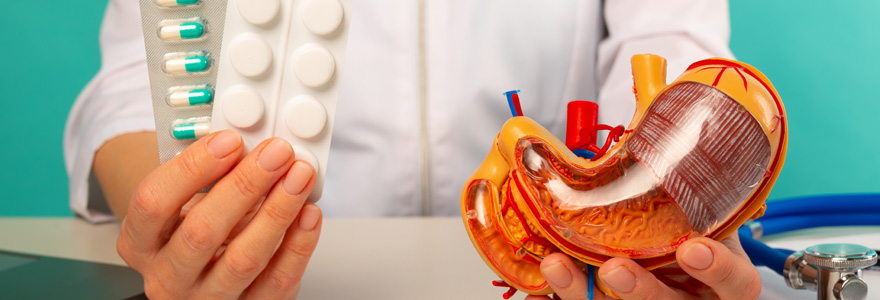Digestive disorders can significantly impact one's quality of life, causing discomfort, pain, and disruption to daily routines. From acid reflux and irritable bowel syndrome (IBS) to inflammatory bowel disease (IBD), these conditions can be challenging to manage. While lifestyle modifications play a crucial role in alleviating symptoms, medicine can provide much-needed relief and support for individuals dealing with digestive disorders. This article explores the various ways in which medication can help ease the symptoms of these conditions, enabling individuals to regain control over their digestive health and improve their overall well-being.
Understanding Digestive Disorders
Digestive disorders encompass a wide range of conditions that affect the gastrointestinal system, including the esophagus, stomach, intestines, liver, and pancreas. These disorders can arise from various factors, such as genetic predisposition, dietary choices, stress, infections, or autoimmune responses. Understanding the underlying causes and mechanisms of digestive disorders is crucial for effective management and treatment. By gaining insights into these conditions, healthcare professionals can tailor interventions and medications to target specific symptoms and promote healing. Furthermore, educating individuals about the nature of their digestive disorder can empower them to make informed decisions regarding their health and seek appropriate medical support.
Common Symptoms of Digestive Disorders
Digestive disorders can manifest in a variety of symptoms, ranging from mild discomfort to severe pain. The specific symptoms experienced can vary depending on the type and severity of the disorder. However, some common symptoms include abdominal pain, bloating, indigestion, heartburn, diarrhea, constipation, nausea, vomiting, and changes in bowel movements. Individuals may also experience fatigue, weight loss, or a decreased appetite. Recognizing these common symptoms is essential in identifying potential digestive disorders and seeking appropriate medical attention. Early detection and intervention can help alleviate symptoms and prevent further complications associated with these conditions.
Diagnostic Methods for Digestive Disorders
Accurate diagnosis is crucial in effectively managing digestive disorders. Healthcare professionals employ various diagnostic methods to identify the specific condition and determine the most appropriate treatment approach. These methods may include medical history assessment, physical examinations, laboratory tests (such as blood tests, stool analysis, and breath tests), imaging tests (such as X-rays, ultrasound, CT scans, and endoscopy), and biopsies. These diagnostic tools enable healthcare providers to evaluate the structure and function of the gastrointestinal system, detect inflammation or abnormalities, and rule out other potential causes of symptoms. By utilizing these diagnostic methods, healthcare professionals can make informed decisions regarding medication and develop personalized treatment plans for individuals with digestive disorders.
Medications for Digestive Disorder Relief
Medications play a significant role in providing relief and managing symptoms associated with digestive disorders. Depending on the specific condition, healthcare professionals may prescribe different types of medicine indicated to relieve digestive disorders. For example, proton pump inhibitors (PPIs) are commonly used to reduce stomach acid production and alleviate symptoms of acid reflux and ulcers. Antispasmodics and antidiarrheal medications can help control muscle spasms and normalize bowel movements in individuals with conditions like IBS. In cases of inflammatory bowel disease, immune-modulating medications, such as corticosteroids, immunosuppressants, or biologics, may be prescribed to reduce inflammation and prevent flare-ups. Additionally, medications like laxatives or stool softeners can be used to address constipation. It is important to note that medication should always be taken as directed by a healthcare professional and in conjunction with other lifestyle modifications for optimal relief and management of digestive disorders.
Lifestyle Changes for Managing Digestive Disorders
In addition to medication, making certain lifestyle changes can significantly contribute to managing digestive disorders and improving overall digestive health. Dietary modifications often play a crucial role in symptom management. This may involve avoiding trigger foods or beverages that exacerbate symptoms, incorporating more fiber-rich foods to regulate bowel movements, and staying adequately hydrated. Stress management techniques, such as meditation, yoga, or deep breathing exercises, can also help reduce the impact of stress on the digestive system. Regular exercise, sufficient sleep, and maintaining a healthy weight can further support digestive health. Additionally, individuals with digestive disorders may benefit from keeping a food diary to identify patterns between their symptoms and specific foods or situations. By adopting these lifestyle changes, individuals can complement their medication regimen and enhance their overall well-being in managing digestive disorders.
